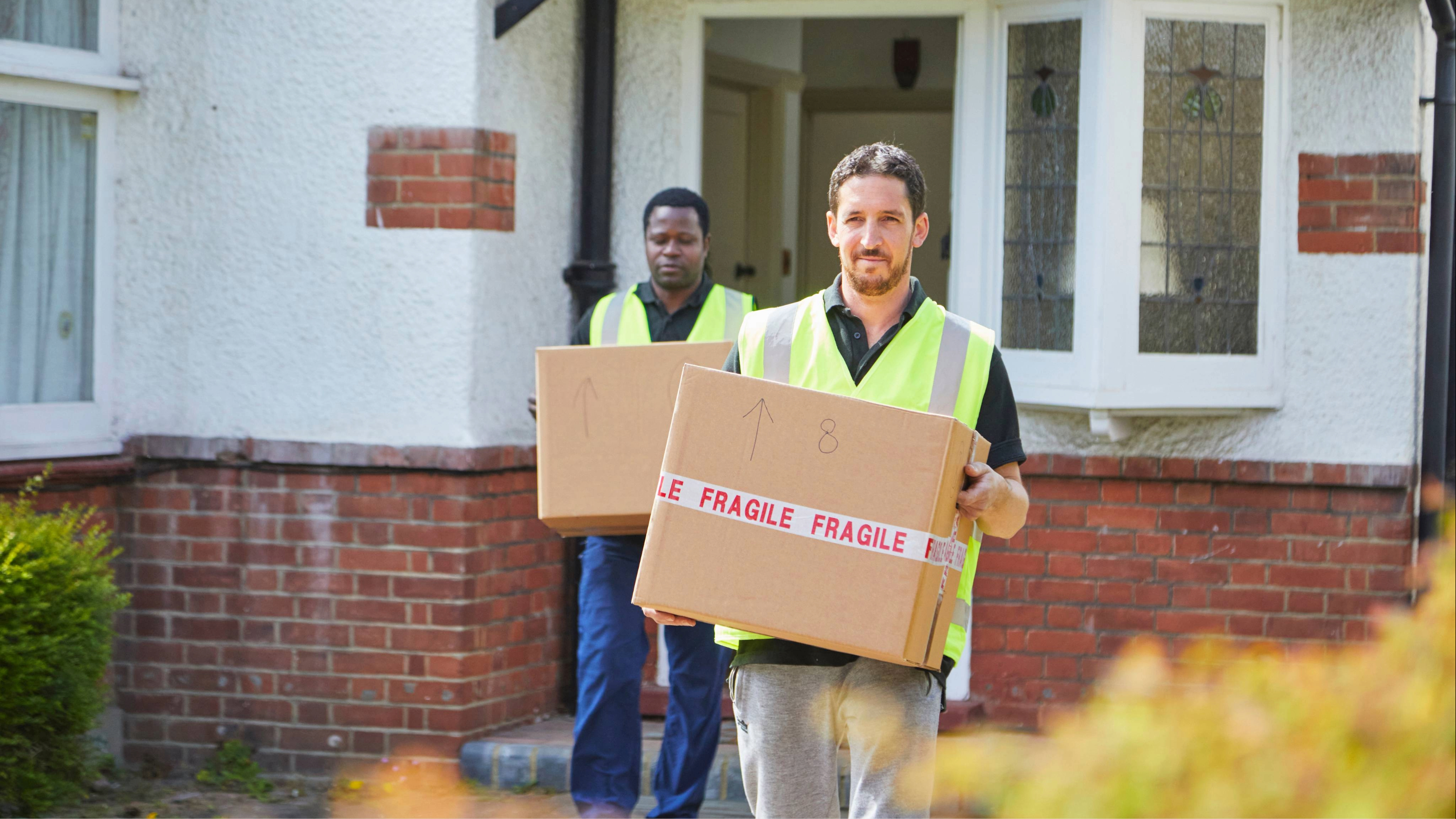3 Questions to Ask Yourself Before Buying a Home
Buying a home can be emotional, but you have to focus on making a financially wise decision and do your due diligence.

Profit and prosper with the best of Kiplinger's advice on investing, taxes, retirement, personal finance and much more. Delivered daily. Enter your email in the box and click Sign Me Up.
You are now subscribed
Your newsletter sign-up was successful
Want to add more newsletters?

Delivered daily
Kiplinger Today
Profit and prosper with the best of Kiplinger's advice on investing, taxes, retirement, personal finance and much more delivered daily. Smart money moves start here.

Sent five days a week
Kiplinger A Step Ahead
Get practical help to make better financial decisions in your everyday life, from spending to savings on top deals.

Delivered daily
Kiplinger Closing Bell
Get today's biggest financial and investing headlines delivered to your inbox every day the U.S. stock market is open.

Sent twice a week
Kiplinger Adviser Intel
Financial pros across the country share best practices and fresh tactics to preserve and grow your wealth.

Delivered weekly
Kiplinger Tax Tips
Trim your federal and state tax bills with practical tax-planning and tax-cutting strategies.

Sent twice a week
Kiplinger Retirement Tips
Your twice-a-week guide to planning and enjoying a financially secure and richly rewarding retirement

Sent bimonthly.
Kiplinger Adviser Angle
Insights for advisers, wealth managers and other financial professionals.

Sent twice a week
Kiplinger Investing Weekly
Your twice-a-week roundup of promising stocks, funds, companies and industries you should consider, ones you should avoid, and why.

Sent weekly for six weeks
Kiplinger Invest for Retirement
Your step-by-step six-part series on how to invest for retirement, from devising a successful strategy to exactly which investments to choose.
You found your "dream home," fell in love and are ready to sign the contract. Not so fast.
This is a huge investment, and perhaps a long-term commitment. So, step back, and ask yourself: What, if anything, stands between you and your dream home?
Here are three questions you should ask yourself before you make an offer:
From just $107.88 $24.99 for Kiplinger Personal Finance
Become a smarter, better informed investor. Subscribe from just $107.88 $24.99, plus get up to 4 Special Issues

Sign up for Kiplinger’s Free Newsletters
Profit and prosper with the best of expert advice on investing, taxes, retirement, personal finance and more - straight to your e-mail.
Profit and prosper with the best of expert advice - straight to your e-mail.
1. Does this purchase fit well with your financial goals?
Financial goals are unique to each individual. For some, buying a dream home could be a top priority. For others, providing for kids' college educations could be more important. For others, a financially secure retirement could be the number one goal.
So, the question is: What are your financial goals? And does the "dream home" fit well with your other financial goals?
A quick way to analyze is asking questions such as:
- Do I have enough reserves to cover my expenses if my spouse or I lose our jobs?
- If I buy this home, can I still save enough for my kids' education?
- How does this impact my retirement planning?
If you do not know or unsure about the answers to these questions, it is time to step back and reassess your readiness!
2. Can you afford it?
You must have thought about affordability before starting to look for the house. However, now is your final chance to do a deep dive and validate your real readiness. At the very least, the following three factors merit a revisit:
Check you have enough savings towards upfront costs.
Start with your down payment for the home. You should be prepared to cover at least 20% of the purchase price. Even if you find a lender who agrees to less than 20%, such arrangement could force you into less favorable loan terms and require you to pay for property mortgage insurance (PMI) to cover the lender's risk.
Next comes the infamous closing costs. These are the various miscellaneous fees you pay to settle your real estate transaction formally. While it is hard to predict these costs in advance, they typically range anywhere between 3% to 6% of the value of your home.
In total, you should expect about 25% of the cost of the home to come out your pocket, so that's how much you need to have liquid and readily available. Can you afford this upfront cost? Are you ready?
Ensure you have sufficient and sustainable cash flow to enjoy the home.
When I was buying my first home, I got this advice from a more experienced family member: "A home comes with a baggage of costs such as the mortgage, property taxes, home insurance, maintenance, repairs and the like. Pay careful attention to these expenses as this could impact your future cash flow."
Looking back now, after 20 years, I agree with her.
Your dream home comes with additional costs and is sure to change your household budget significantly. Using a worksheet, such as this one from Kiplinger, develop a new budget with a breakdown of home-related expenses. Once the budget is ready, check if your current income sources provide sufficient cash flow for your anticipated expenses. Finally, analyze how stable your sources of income are so you can sustain the expenses into the future and enjoy your dream home!
Check your credit.
The blueprint for your credit worthiness is your credit report. It contains detailed information on your past spending patterns, your history of paying back loans on time, etc. Your lender will thoroughly scrutinize this report before agreeing to provide you the loan.
So, to be on top of your game, obtain your credit report (you can do so www.annualcreditreport.com) and ensure it is accurate and has no red flags. If you find errors in the report, try to get them fixed as soon as possible. (Also see Free FICO Credit Scores for Everyone.)
3. How much of a tax break would you get?
It is true that buying a home could help you reduce your tax bill. However, the idea that mortgage payments and property taxes are always entirely deductible is a misconception.
For example, if you do not itemize your deductions and choose to take the standard deduction instead, you get no tax benefit from home buying. Second, even if you decide to itemize, only the interest portion of your mortgage payment is deductible, not the entire amount. Third, property taxes are not deductible in the alternate minimum tax (AMT) method of tax calculation. Lastly, home-related tax breaks are deductions, not credits. In other words, how much you save depends on your marginal tax bracket. (See Tax Breaks for Owning a Home.)
So, have you analyzed all these situations? Do you know if you itemize or take standard deductions? Do you know if you are exposed to AMT? Do you know your marginal tax bracket? Ultimately, do you have a reasonable idea as to what your tax break will be if you commit to this home?
If you are not sure about the answers to these questions, now is the time to do more research or seek professional help. Don't make your home-buying decision with an assumption that you get huge tax breaks.
So, what do you think? Buying your dream home can be emotional. Don't make a hasty decision without considering the financial consequences. Step back, analyze carefully and make a wise decision. Good luck!
Vid Ponnapalli is the founder and president of Unique Financial Advisors. He provides customized financial planning and investment management solutions for young families with children and for professionals who are approaching retirement. He is a Certified Financial Planner™with an M.S. in Personal Financial Planning.
Profit and prosper with the best of Kiplinger's advice on investing, taxes, retirement, personal finance and much more. Delivered daily. Enter your email in the box and click Sign Me Up.

-
 Nasdaq Leads a Rocky Risk-On Rally: Stock Market Today
Nasdaq Leads a Rocky Risk-On Rally: Stock Market TodayAnother worrying bout of late-session weakness couldn't take down the main equity indexes on Wednesday.
-
 Quiz: Do You Know How to Avoid the "Medigap Trap?"
Quiz: Do You Know How to Avoid the "Medigap Trap?"Quiz Test your basic knowledge of the "Medigap Trap" in our quick quiz.
-
 5 Top Tax-Efficient Mutual Funds for Smarter Investing
5 Top Tax-Efficient Mutual Funds for Smarter InvestingMutual funds are many things, but "tax-friendly" usually isn't one of them. These are the exceptions.
-
 I'm an Opportunity Zone Pro: This Is How to Deliver Roth-Like Tax-Free Growth (Without Contribution Limits)
I'm an Opportunity Zone Pro: This Is How to Deliver Roth-Like Tax-Free Growth (Without Contribution Limits)Investors who combine Roth IRAs, the gold standard of tax-free savings, with qualified opportunity funds could enjoy decades of tax-free growth.
-
 I'm a Real Estate Investing Pro: This Is How to Use 1031 Exchanges to Scale Up Your Real Estate Empire
I'm a Real Estate Investing Pro: This Is How to Use 1031 Exchanges to Scale Up Your Real Estate EmpireSmall rental properties can be excellent investments, but you can use 1031 exchanges to transition to commercial real estate for bigger wealth-building.
-
 2026's Tax Trifecta: The Rural OZ Bonus and Your Month-by-Month Execution Calendar
2026's Tax Trifecta: The Rural OZ Bonus and Your Month-by-Month Execution CalendarReal estate investors can triple their tax step-up with rural opportunity zones this year. This month-by-month action plan will ensure you meet the deadlines.
-
 Have You Aligned Your Tax Strategy With These 5 OBBBA Changes?
Have You Aligned Your Tax Strategy With These 5 OBBBA Changes?Individuals and businesses should work closely with their financial advisers to refine tax strategies this season in light of these five OBBBA changes.
-
 How to Find the Best International Moving Company for Your Big Move Abroad (and Avoid Costly Mistakes)
How to Find the Best International Moving Company for Your Big Move Abroad (and Avoid Costly Mistakes)It's best to use an international moving company to protect your belongings and budget when relocating to another country. Here's how to find a reputable firm.
-
 I'm a Real Estate Expert: 2026 Marks a Seismic Shift in Tax Rules, and Investors Could Reap Millions in Rewards
I'm a Real Estate Expert: 2026 Marks a Seismic Shift in Tax Rules, and Investors Could Reap Millions in RewardsThree major tax strategies will align in 2026, creating unique opportunities for real estate investors to significantly grow their wealth. Here's how it works.
-
 Do Self-Storage REITs Deserve Space in Your Portfolio? It's a Yes From This Investment Adviser
Do Self-Storage REITs Deserve Space in Your Portfolio? It's a Yes From This Investment AdviserSelf-storage is an overlooked area of the real estate market, even though demand is strong. Investors can get in on the action through a REIT.
-
 Is Fear Blocking Your Desire to Retire Abroad? What to Know to Turn Fear Into Freedom
Is Fear Blocking Your Desire to Retire Abroad? What to Know to Turn Fear Into FreedomCareful planning encompassing location, income, health care and visa paperwork can make it all manageable. A financial planner lays it all out.